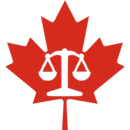| Part of a series on |
| Canadian law |
|---|
 |
| Sources |
| Core areas |
| Other areas |
| Courts |
| Education |
Human rights in Canada have come under increasing public attention and legal protection since World War II. Prior to that time, there were few legal protections for human rights. The protections which did exist focused on specific issues, rather than taking a general approach to human rights.
The current legal framework for the protection of human rights in Canada consists of constitutional entitlements, and statutory human rights codes, both federal and provincial. The constitutional foundation of the modern Canadian human rights system is the Canadian Charter of Rights and Freedoms of 1982, which is part of the Constitution of Canada. Before 1982, there was little direct constitutional protection against government interference with human rights, although provincial and federal laws did provide some protection for human rights enforceable against government and private parties. Today, the charter guarantees fundamental freedoms (free expression, religion, association and peaceful assembly), democratic rights (such as participation in elections), mobility rights, legal rights, equality rights, and language rights.
Controversial human rights issues in Canada have included assisted suicide rights, patient rights, freedom of expression, freedom of religion, parents' rights, children's rights, abortion rights vs fetal rights, minority rights, majority rights, rights of the disabled, aboriginal rights, tenant rights and economic, social and political rights.[1]
- ^ Human Rights Canada Archived December 3, 2008, at the Wayback Machine
© MMXXIII Rich X Search. We shall prevail. All rights reserved. Rich X Search
